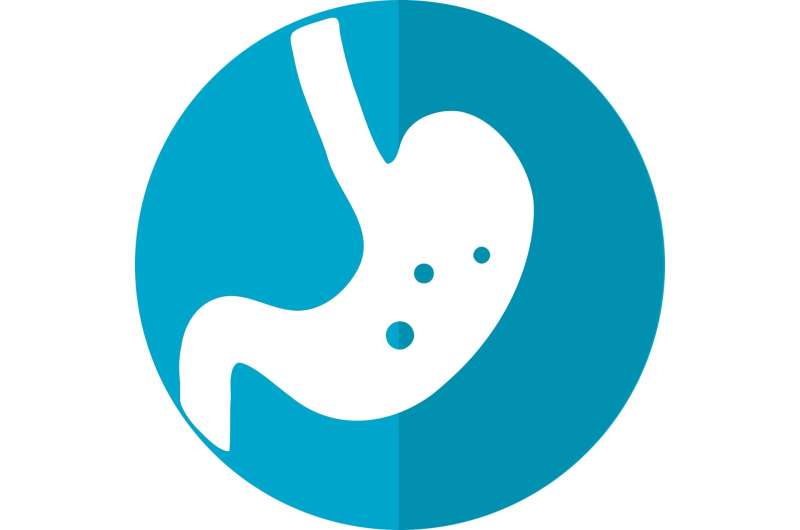This article has been reviewed according to Science X's editorial process and policies. Editors have highlighted the following attributes while ensuring the content's credibility:
fact-checked
peer-reviewed publication
trusted source
proofread
New guideline recommends blood and stool tests for monitoring ulcerative colitis

In new evidence-based guidelines, the American Gastroenterological Association (AGA) recommends non-invasive biomarkers as a first-line strategy for monitoring many patients with ulcerative colitis (UC). These guidelines were published today in Gastroenterology.
The AGA guidelines outline use cases for three biomarkers that provide accurate insights into ulcerative colitis disease activity: serum C-reactive protein (CRP) (blood), fecal calprotectin (stool) and fecal lactoferrin (stool).
"For decades we have regarded endoscopy as the gold standard for monitoring ulcerative colitis and detecting bowel inflammation, but repeated endoscopic assessment is invasive, expensive and often impractical," says guideline author Siddarth Singh, MD, MS, University of California, San Diego. "Not only are biomarkers accurate, but they provide patients with a cheaper and more convenient option of monitoring to ensure medications are working and ultimately keeping their disease well-managed."
AGA recommends a monitoring strategy that integrates non-invasive biomarkers for patients with ulcerative colitis in remission (no current symptoms) as well as those with current symptoms.
Patients with ulcerative colitis in symptomatic remission:
- Perform interval biomarker monitoring every six to 12 months.
- AGA recommends stool-based biomarkers over blood testing.
- If biomarkers are normal, AGA suggests continuing biomarker monitoring and avoiding routine endoscopic assessment.
- If biomarkers are elevated, AGA suggests endoscopic assessment by a gastroenterologist.
- Listen to your body! Talk to your doctor about any new symptoms.
Patients with symptomatically active ulcerative colitis:
- Biomarker testing should be the first step to determine the need for endoscopic assessment.
- For patients with mild symptoms who have normal or elevated biomarkers, AGA suggests endoscopic assessment by a gastroenterologist.
- For patients with moderate to severe symptoms who have normal biomarkers, AGA suggests endoscopic assessment by a gastroenterologist.
- For patients with moderate to severe symptoms and elevated biomarkers, AGA suggests treatment adjustment and avoiding endoscopic assessment.
With AGA guidelines guiding the use of noninvasive biomarkers, physicians can confidently offer a more convenient and closer monitoring option for their patients.
"Currently biomarkers are considered experimental by insurers," adds guideline author Ashwin N. Ananthakrishnan, MBBS, MPH, Massachusetts General Hospital. "This guideline is a major step in showing the value of noninvasive biomarkers and the importance of insurers covering biomarker monitoring to improve patient satisfaction and clinical outcomes."
AGA will advocate for all insurers to cover the cost of biomarker testing in ulcerative colitis.
About ulcerative colitis
Ulcerative colitis is one of the two main types of inflammatory bowel diseases and is more common than Crohn's disease. It causes inflammation (swelling) and sores (called ulcers) in the large intestine (colon and rectum) and may affect part or all the large intestines. Ulcerative colitis can happen at any age, but it is more likely to develop in people between the ages of 15 and 30, or older than 60 years of age.
More information: Siddharth Singh et al, AGA Clinical Practice Guideline on the Role of Biomarkers for the Management of Ulcerative Colitis, Gastroenterology (2023). DOI: 10.1053/j.gastro.2022.12.007
Clinical Decision Support Tool: Role of Biomarkers for Ulcerative Colitis, Gastroenterology (2023). DOI: 10.1053/S0016-5085(23)00066-5
Spotlight: Role of Biomarkers for Ulcerative Colitis, Gastroenterology (2023). DOI: 10.1053/S0016-5085(23)00068-9




















